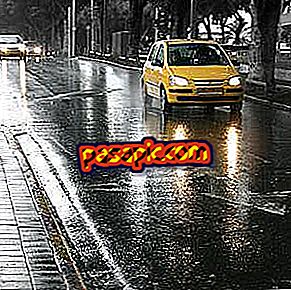How to challenge a will

One of the biggest concerns that has occupied our society over time has been the distribution of assets accumulated in life to the heirs. To do this, the legal figure of the will has been created , a document that determines how the assets should be distributed after the death of the deceased and how they should dispose of them.
In order for the writer to write a completely valid will, he must comply with legal requirements, such as raising him to public through a notary, doing so before at least two witnesses, or doing so with the appropriate mental capacities. If you are looking for what steps should be taken to contest a will, in this article we explain it to you.
When can a will be challenged?
To contest a will must be taken into account if the testator has met the minimum legal requirements. Thus, the person who has an interest in acquiring some property of the inheritance, either through property or by acquiring money, must base the objection in one of the following causes:
- For a testament to be valid, the testator must do it before a notary, and the testator must express his will in a document, which after protocol, will become a will. Once the testament is drawn up, the notary must read it to the testator so that he understands all its contents and signs it stating that he agrees with its content. For the signature of the will it is necessary that there be at least two witnesses. It is not necessary for witnesses to be acquaintances or relatives.
- One of the problems that frequently arise is the modification of the will shortly before the testator dies. On these occasions, it is possible that the testator does not have enough mental capacity to know what he is doing or is under the manipulation of an interested party. If this cause is known, the person interested in contesting the testament can claim that the testator did not understand what he was doing. For this, it will be necessary to provide as evidence a medical certificate that recognizes that the person suffered some type of disability to discern.
- It is possible that the will is drafted under pressure from the alleged heirs or interested parties. In these cases, it will be necessary to prove that the testator received pressures to write the will in such a way that they do not benefit him. Remember that the testator can change the will at any time and as many times as he thinks necessary. It is not necessary for anyone to know about the modifications that it suffers or if it has been revoked by a new testament, this being the way that the law facilitates to protect itself from alleged frauds.
How is a will challenged?
To challenge a will it is necessary to file a claim with the Court of First Instance of the province where the testator died. For this it is necessary to hire a lawyer and attorney representing the plaintiff in the trial. This implies initiating a judicial procedure in which it will be necessary to present all the necessary evidence to demonstrate that one of the causes explained in the previous section is incurred. It is necessary to present all the necessary and timely evidence, because if it is not done, it is better not to start a trial, because the Civil Procedure Law prevents holding two trials on the same problem for not having submitted the necessary evidence in the first, if they were already available.
As soon as the Court of First Instance decides whether or not to admit the claim, the other party will be informed of the claim, and will have 20 days to answer the claim . In the answer to the complaint, the defendant must plead the sufficient causes and justifications to make it clear that the will does not incur in any of the causes of challenge.
Once the suit is answered, a pre-trial hearing will be held, within a maximum period of 20 days from the answer to the complaint, where an agreement will be sought between the parties to avoid coming to trial. If an agreement that satisfies the parties is not reached, the facts and arguments on which they disagree are fixed and the necessary evidence is proposed to determine who is right.
During the trial, the test will be carried out, such as the forensic certification that the testator was not in psychic conditions to modify the will and the way in which the assets of the inheritance are distributed. The final conclusions of each party will also be presented, emphasizing the arguments that favor them most. Then, sentence is dictated where it is established who is right in their claims.


